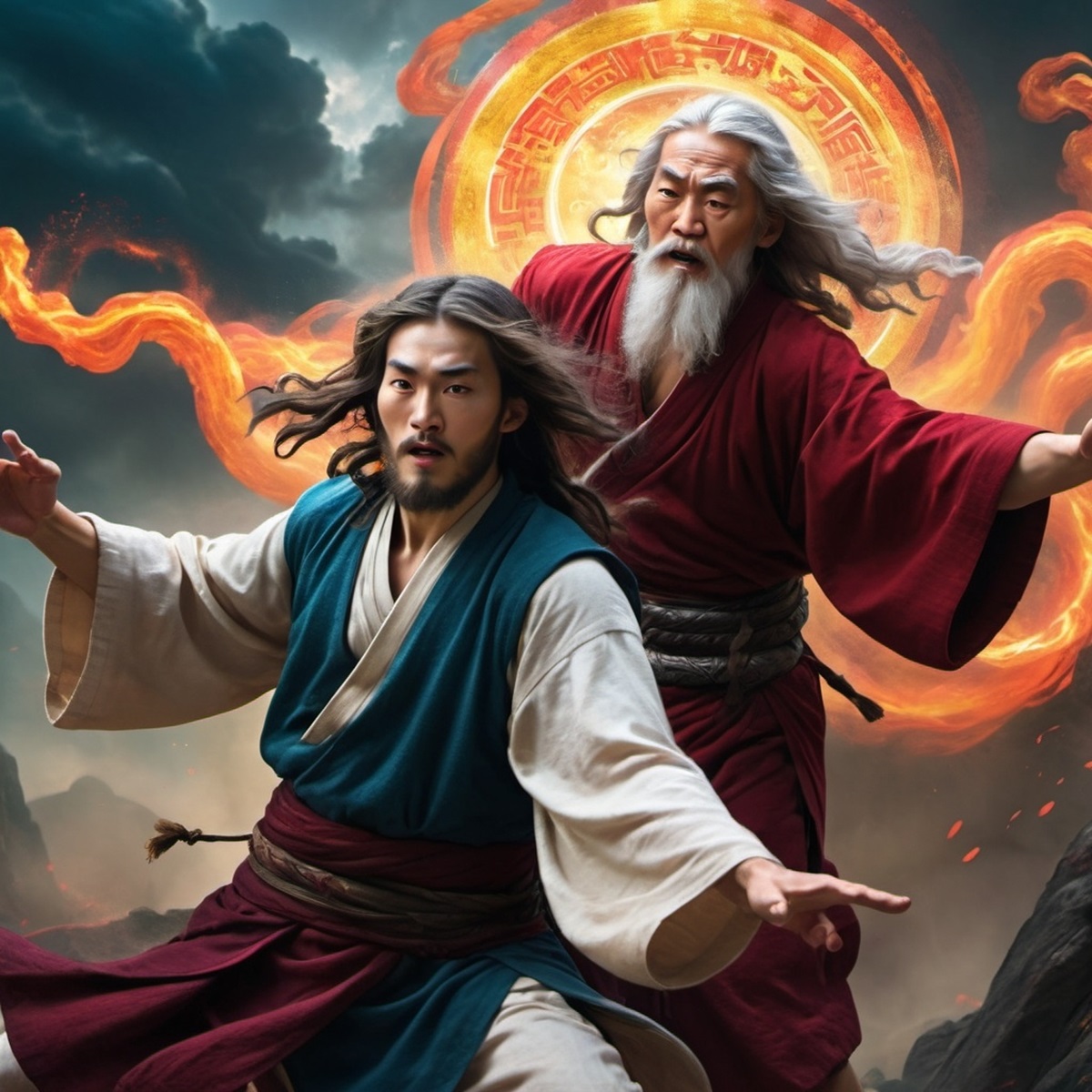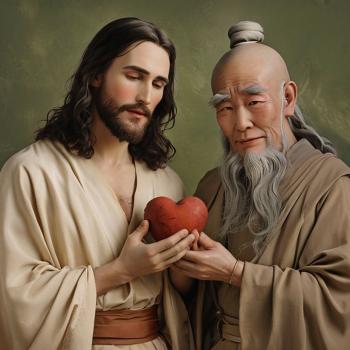Sometimes you can be your own worst enemy. When you allow ego to get in the way, success can be as dangerous as failure.

Jesus and Lao Tzu warn against the danger of letting ego run the show. But they don’t just give a warning—they also offer a solution. In the thirteenth verse of the Tao Te Ching, Lao Tzu shows that selfless love overcomes the pitfalls of pride.
Lao Tzu’s Tao Te Ching, Verse 13
JH McDonald Translation
Success is as dangerous as failure,
and we are often our own worst enemy.What does it mean that success is as dangerous as failure?
He who is superior is also someone’s subordinate.
Receiving favor and losing it both cause alarm.
That is what is meant by success is as dangerous as failure.
What does it mean that we are often our own worst enemy?
The reason I have an enemy is because I have a “self”.
If I no longer had a “self”, I would no longer have an enemy.Love the whole world as if it were your self;
then you will truly care for all things.
Success and Failure
Success and failure are often intertwined. Lao Tzu said, “Success is as dangerous as failure, and we are often our own worst enemy.” Jesus explains this through the parable of the unforgiving servant (Matthew 18:21-35).
A wealthy man had a servant who borrowed a large sum of money. At first, coming into such a treasure felt like a success for that servant. He spent some of it on himself, indulging in fine sumptuous food, new transportation, and even a bigger house. Then he spent liberally and invested foolishly. He started a new business without the experience or knowledge to make it successful. In the end, he was unable to pay back the money he owed.
In that day, such people went to debtor’s prison until they could pay off their arrears through forced labor. Fearing this, he threw himself at his employer’s feet, begging for mercy yet expecting to find none. He was surprised when his employer granted his request. Instead of debtor’s prison, or even refinancing with smaller payments at higher interest, the lender forgave the debt entirely.
Fluctuating Feelings
So far in the story, you can imagine the highs and the lows of the employee’s emotions. When he first comes into money, he feels that he is walking on air. As his business fails and he is forced to grovel, he trembles at the prospect of prison. Yet, with forgiveness comes the elation of knowing that he can rebuild his life.
Still, his feelings fluctuate as the servant considers how close he came to incarceration. He remembers a friend who owes him a small amount of money. Having just received grace from his creditor, you would think the man might be gracious. Yet, having just pleaded for mercy, he chooses instead to focus on his painful humiliation.
A Payment Demanded
He runs to his friend, grabs him by the shirt, shakes him, and demands to be repaid. When his comrade cannot repay him, he has the man thrown into debtor’s prison. Having just begged his own master for clemency, the unforgiving servant has made himself feel superior to someone else, thereby restoring his own sense of self-worth. Imagining himself better than another person, he forgets that he is still someone else’s subordinate. He has received favor, yet he failed to give it, and thus he is about to lose it.
Success is as Dangerous as Failure
This is what Lao Tzu means when he says that success is as dangerous as failure and that we are often our own worst enemies. The blessing of having received pardon results in an unforgiving spirit within the servant. The unforgiving servant’s triumph becomes his disaster when his employer hears about the inequity. To repay the servant’s lack of pity for his friend, the employer reinstates the debt and throws the ungracious servant into prison.
Ego is the Enemy
Lao Tzu writes, “The reason I have an enemy is because I have Self. If I no longer had Self, I would no longer have an enemy.” Were it not for the unforgiving servant’s ego, he would receive grace with a humble spirit. He would extend grace to his friend as well. Both would benefit from the employer’s benevolence. Yet, because of an inflated ego, the servant needs to reestablish dominance over someone else. This results in that friend’s pain as well as his own. The Self—the ego—becomes his nemesis. Without ego, he would no longer have that adversary.
Love Your Neighbor; Love the World
What is the solution? Lao Tzu writes, “Love the whole world as if it were yourself; then you will truly care for all things.” Jesus said something similar: “Love your neighbor as yourself.” If I truly love the world as myself, I recognize that there is no difference between myself and the one who I believe owes me something.
Your Own Worst Enemy
“I find myself connected to the great and the small,” writes Lao Tzu. You can be both the receiver and the giver of grace. Having both given and received, you can abandon your ego and become a conduit of grace. When Jesus said, “Love your neighbor as yourself,” it was not merely a nicety. It was an invitation to forsake ego, to become a blessing to others, and to stop acting as your own worst adversary.
Something to Pray…
Source of grace beyond measure, your kindness lies beyond human capacity for understanding. Even when I am my own worst enemy, you continue to fill my life with increasing abundance. Remind me that success can be as dangerous as failure. Make me mindful that I am no better than anyone else. Cleanse me from ego-driven manipulations. In my effort to be more like you, may I extend that same favor to those who are in my debt. Help me to love the world as if it were myself, so that I may truly care for all things. Amen.













